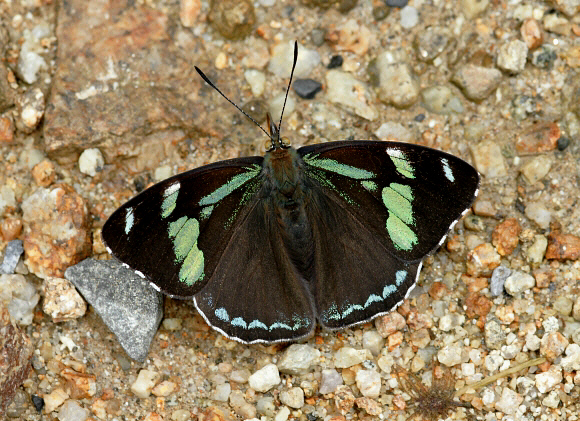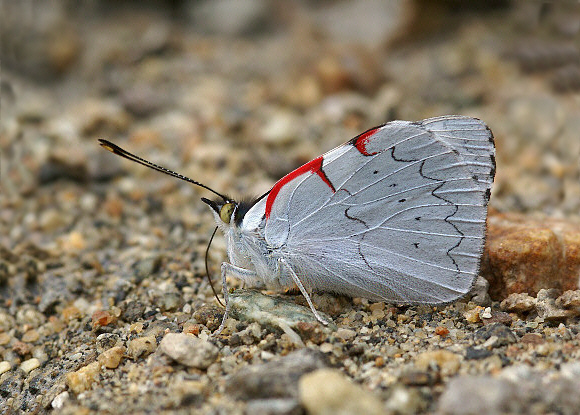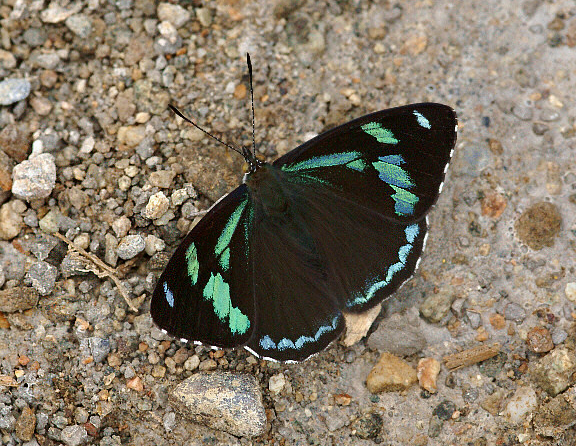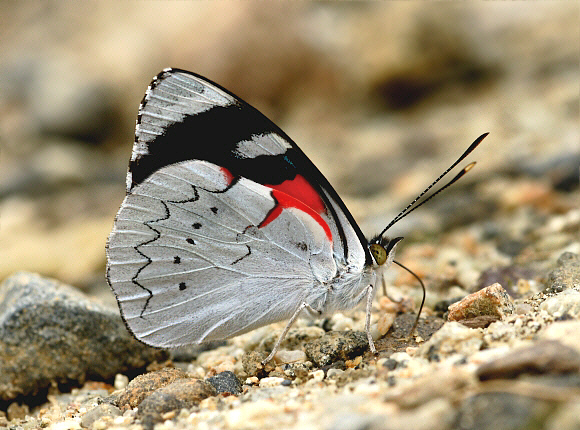 Perisama canoma thryoessa male, Manu cloudforest, 1700m – Adrian Hoskins
Perisama canoma thryoessa male, Manu cloudforest, 1700m – Adrian Hoskins
Introduction
The Biblidinae are recognised by their diverse but simple and colourful patterns. In the neotropics their representatives include the Callicorina – a subtribe of small-medium sized butterflies, marked on the uppersides with bands of metallic blue or green. The Callicorina includes the genus Diaethria, instantly recognised by the 88 or 89 markings on the undersides, and Perisama, which are similar on the uppersides, but have plain undersides marked only with dots and wavy lines.
The genus Perisama comprises 32 known species. They are medium-sized butterflies with blackish uppersides, marked with diagonal bands of turquoise or green on the forewings. Many species also have a band of the same colour around the hindwing margins. Perisama species are found mostly in the Andean cloudforests at altitudes between 1200-2400m, but there is also a species endemic to Costa Rica, and another endemic to Mexico.
Perisama canoma occurs from Ecuador to Bolivia. The subspecies P. canoma canoma is found in southern Peru.
 Perisama canoma thryoessa male, Manu cloudforest, 1700m – Adrian Hoskins
Perisama canoma thryoessa male, Manu cloudforest, 1700m – Adrian Hoskins
Habitats
This species is found on the eastern slope of the Andes, at altitudes between about 1400-2000m.
 Perisama canoma thryoessa male, San Pedro, Madre de Dios, Peru – Adrian Hoskins
Perisama canoma thryoessa male, San Pedro, Madre de Dios, Peru – Adrian Hoskins
Lifecycle
The lifecycle of this and all other Perisama species appears to be unknown.
 Perisama canoma thryoessa male, San Pedro, Madre de Dios, Peru – Adrian Hoskins
Perisama canoma thryoessa male, San Pedro, Madre de Dios, Peru – Adrian Hoskins
Adult behaviour
This species is usually encountered in two’s and three’s, aggregating with other Perisama species, visiting damp ground close to human habitations, and is attracted by animal urine on road surfaces and around buildings.
In hot sunny conditions the butterflies are extremely active, dashing rapidly back and forth between the tree tops and the surface of the ground, where they stop momentarily here and there on logs, stumps, rocks, wood-shavings and other objects.
In cloudy weather they bask on the ground awaiting the return of sunshine. In such conditions they are extremely loathe to leave their basking places, and only the threat of rain causes them to abandon them and return to the nearby forest.
